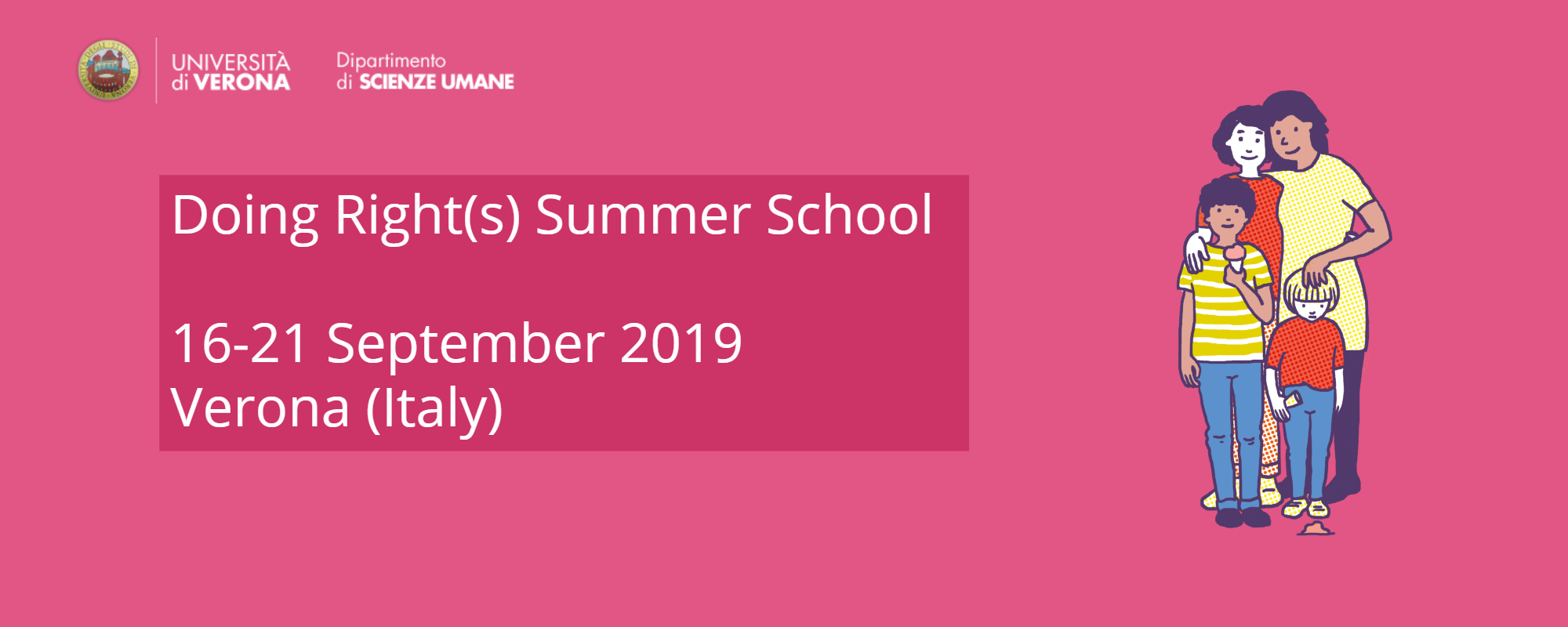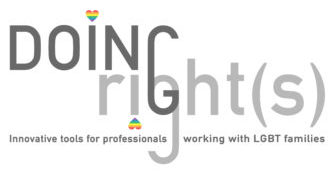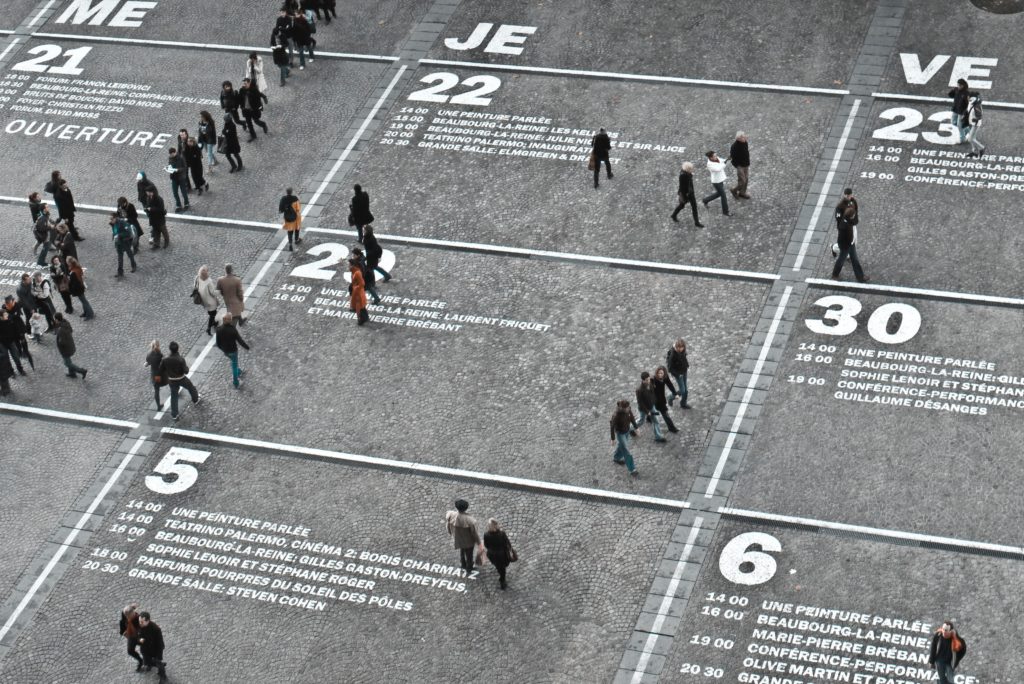
Doing Right(s) summer school
University of Verona, 16-21 September 2019
Frameworks and tools for working with LGBT+ families in education, health and social care
How do LGBT+ families challenge routine professional practice with couples and families?
How to build LGBT-inclusive environments for children and adults?
LGBT couples, as well as children living with same-sex parents or transgender parents, present an unexpected and unknown world to many professionals in healthcare, social and educational services across Europe. These new forms of kinship and parenting challenge longstanding attitudes and expectations regarding family and gender roles. The 2016 report of the UE Fundamental Rights Agency highlights the key role of practitioners in protecting and promoting LGBT fundamental rights, as well as the need for pre-service and in-service training on family diversity and discrimination based on gender identity and sexual orientation.
The Doing Right(s) summer school will provide participants with an opportunity to learn about, experience and discuss concepts, theoretical models, methods and tools concerning:
- Family diversity: intersectional and critical approaches to kinship and family relations
- LGBT parents and children’s experiences acrossEurope
- Identities, gender system and challenges to heteronormativity in professional language and practice
- Ways to recognize and contrast stereotyping and discrimination in institutional settings
- The role of professionals in building inclusive, empowering, equal servi
School Faculty
- Tarah Fleming – Start Dialog (USA)
- Stephen Hicks – University of Manchester (UK)
- Scholars belonging to the project partners’ teams:
Agenzia Sanitaria e Sociale Regione Emilia Romagna (IT);
Casal Lambda (ES);
Institute of Psychology Polish Academy of Sciences (PL);
Tolerado (PL);
Università di Verona (IT);
Universitat Autonoma de Barcelona (ES).
The Summer school stems from the cooperation between researchers, professionals, and activists from Italy, Poland and Spain within the framework of the Doing Right(s) Erasmus+ project. It is designed for master students, PhD students, postdoctoral fellows, researchers in health, education, law and social sciences and it is also suitable for experienced practitioners in education, healthcare, social work.
During the summer school, the students will be involved in lectures, workshops, discussions, data analysis, hands-on activities and reflective practices.
The faculties teaching in the summer school consist of the project partners: University of Verona (Italy),Polish Academy of Sciences (Poland), Universidad Autónoma de Barcelona (Spain), Agenzia Sanitaria e Sociale Regione Emilia Romagna (Italy), Casal Lambda (Spain), Tolerado (Poland).
Confirmed keynote speakers: Stephen Hicks, University of Manchester (UK), Tarah Fleming, Start Dialog (USA).
Who can apply
Master students, PhD students, postdoctoral fellows and researchers in health, education, law, social sciences, experienced practitioners dealing with family issues.
How to apply – DEADLINE EXTENDED to MAY 27th!
Send an email to the following email address: doingrights@ateneo.univr.it by May 27th, 2019 including:
1) a CV;
2) an accompanying letter describing your current area of studies, research or professional activity, and your motivation in participating to the Doing Right(s) Summer School (max 600 words).
Notification of acceptance
Doing Right(s) organizing committee will select candidates and send a notification of acceptance by June 15th, 2019.
Approved candidates should register by July 12th, 2019.
Enrollment is subject to a 60 euros fee covering lunches and training materials. Participants should cover travel and accommodation costs.
For scholarship options please see the section below.
In order to obtain a certificate of completion providing 6 ECTS, registered participants must both:
- Attend the full programme on site.
- Submit a short report by September 30th, 2019.
- May 2nd, 2019: submission of the application for the summer school scholarship.
- May 20th, 2019: submission of the application (for students who do not apply for the scholarship).
- June 15th, 2019: notification of acceptance.
- July 12th, 2019: registration.
- October 15th, 2019: submission of the report to obtain ECTS and the certificate of completion.
- November 15th, 2019: evaluation of the essays and production of the certificate of completion.
Program and schedule
Welcome session
Introduction to the summer school: key topics and features
Constructing the group as a learning environment
LGBT+ families: diversities, experiences and challenges
Joanna Mizielinska, Agata Stasinska, Institute of Psychology – Polish Academy of Sciences
The first working session aims to explore the plurality of LGBT+ families, their various configurations, constitution processes, challenges, and the different forms of discrimination LGBT+ families and children may experience. Through analysis of different cases participants will gain the awareness of the social roots of heteronormative framework and its power in assimilating family diversity and will begin to understand their professional responsibility in tackling prejudices and stereotypes.
Networking: experiences of grassroots partners
Staff from NGOs and public organizations working with LGBT+ families: Tolerado (Poland), Casal Lambda (Spain), Agenzia Sanitaria e Sociale – Regione Emilia Romagna (Italy)
Starting from the experiences the organizations will share, participants will understand the functioning and main characteristics of LGBT+ NGOs in different European countries as well as the principles and practices of networking between professionals, NGO and public bodies.
This will facilitate participants in becoming able to identify key actors in different contexts, building effective relationships both with the LGBT community and other professionals, activate formal and informal resources in order to better meet the families’ needs.
Gender identity, gender expression, sexual orientation and social norms
Federica de Cordova, Giulia Selmi, Chiara Sità, University of Verona
Using an active methodology this lecture will address the connection among sexed bodies, emotions and roles, deepening the social process of construction of gender binarism, providing theoretical frames and research evidence to interpret gender relationships and parental roles.In particular, the lesson will explore how such socio-cultural process affects non-heterosexual parenthood, and its impact on people’s actual lives and agency.
Reshaping reproduction and family bonds
Beatriz San Roman, Patricia Aljama, Universidad Autonoma de Barcelona
The lectures will explore the sex/gender system and the process of social construction of gender differences, connecting it with heteronormativity; the differences between gendered parental roles and parenting functions; the connection between stereotypes, social models and inequality; the way ARTs and new family configurations design kinship, family ties and meanings attached to family and belonging.
The lectures will be followed by a workshop where participants will ground on this knowledge and their previous experiences to critically reflect on their own stereotypes and models, to analyze the ways gender stereotypes shape mainstream meanings and practices on families and parenting, to start thinking about transforming professional practice and work environment in order to minimize the impact of stereotyped vision on gender and family relationships.
Workshop: dealing with gender, sexuality and family diversity in professional practice
UNIVR and UAB teams
The workshop will address some of the topics developed during the morning session; using active methodologies the participants will be engaged in translating the theoretical issues into their own professional practice, pinpointing strengths and criticalities.
Parenthood and gender transition: transgender parents and parents of transgender children
Giulia Giardina, Giovanni Papalia,Sat-Pink Verona and Padua
The workshop aims to explore the different configurations of families that include transgender people, specifically those in which there are transgender children or transgender parents, deepening the needs and difficulties that these individuals face during the transition process. In groups, participants will be presented with different real case scenarios and will be asked to produce a range of responses based on the analysis of their needs. This will raise the awareness about the fragilities, the requests and the challenges of the families with transgender members. The aim of the workshop is also to counteract the lack of information about transition and parenthood, from the creation of a parental project for transgender future parents to the support destined to transgender children from their parents.
Equity and inclusion practices in working with LGBT+ families – First session
Tarah Fleming, Start Dialog, USA
The two sessions will go deeper into the discrimination and micro-aggression processes that are experiences by minority groups and the inclusive practices involving LGBT+ families (affirmative models, anti-bias approaches, critical reflective practice), through the analysis of the role of professionals and public spaces in building equity and inclusion towards all identities (understood in an intersectional perspective).
Participants will become aware of privilege and the power dynamics that inform their work and will be able to critically assess their current materials and methods’ implicit family models in order to develop, implement and disseminate LGBT-inclusive strategies in their workplace. They will experience the role of prejudices and stereotypes in understanding specific needs and situations. They will be able to handle different questions coming from families or kids (i.e. the origins of the children who have two same-sex parents, or a trans parent, etc.) and to intervene in a group dynamic (i.e. in a classroom facing bullying behavior).
Understanding families: “family as practices” – First session
Stephen Hicks, University of Manchester
The sessions will explore the perspective of “family practices” and its impact on professional attitudes and tools. Participants will explore the potential of learning from family stories, recognize the families’ perspectives and needs, understand how language, artifacts, strategies, norms, routines can create or reduce barriers to inclusion and participation in the relationship between families and services. Family and parenting will be understood as cultural and historical constructions that cannot be assessed on the basis of a single dimension. Participants will work on their perspectives and attitudes in meeting parents and children and assessing their needs; they will discuss ways to apply correct strategies to face different family needs and to influence other professionals and institutions to understand family diversities.
Equity and inclusion practices in working with LGBT+ families – Second session
Tarah Fleming, Start Dialog, USA
The two sessions will go deeper into the discrimination and micro-aggression processes that are experiences by minority groups and the inclusive practices involving LGBT+ families (affirmative models, anti-bias approaches, critical reflective practice), through the analysis of the role of professionals and public spaces in building equity and inclusion towards all identities (understood in an intersectional perspective).
Participants will become aware of privilege and the power dynamics that inform their work and will be able to critically assess their current materials and methods’ implicit family models in order to develop, implement and disseminate LGBT-inclusive strategies in their workplace. They will experience the role of prejudices and stereotypes in understanding specific needs and situations. They will be able to handle different questions coming from families or kids (i.e. the origins of the children who have two same-sex parents, or a trans parent, etc.) and to intervene in a group dynamic (i.e. in a classroom facing bullying behavior).
Understanding families: “family as practices” – Second session
Stephen Hicks, University of Manchester
The sessions will explore the perspective of “family practices” and its impact on professional attitudes and tools. Participants will explore the potential of learning from family stories, recognize the families’ perspectives and needs, understand how language, artifacts, strategies, norms, routines can create or reduce barriers to inclusion and participation in the relationship between families and services. Family and parenting will be understood as cultural and historical constructions that cannot be assessed on the basis of a single dimension. Participants will work on their perspectives and attitudes in meeting parents and children and assessing their needs; they will discuss ways to apply correct strategies to face different family needs and to influence other professionals and institutions to understand family diversities.
Final workshop and assessment
The last working session will be devoted to a workshop where the summer school concepts, perspectives and tools will be used to analyze cases and controversial issues.
Scholarship
Only students enrolled in Autonomous University of Barcelona (UAB) and students enrolled in Polish universities can apply for a scholarship, covering the registration fee, travel and accommodation costs.
How to apply for the summer school and scholarship
UAB students and Polish students interested in applying for the summer school and the scholarship should send an email to the following email address: doingrights@ateneo.univr.it by May 2, 2019 including:
- a CV
- a accompanying letter describing your current area of studies, research or professional activity, and your motivation in participating to the Doing Right(s) Summer School (max 600 words)
- a motivation letter describing the reasons for applying for the scholarship
For information concerning the scholarship for UAB students please write to: beatriz.sanroman@uab.cat
For information concerning the scholarship for students enrolled in Polish universities please write to: astasinska@psych.pan.pl
Notification of acceptance
Doing Right(s) organizing committee will select candidates and send a notification of acceptance and award of the scholarship by June 15th, 2019.
Approved candidates should register by July 12th, 2019.

